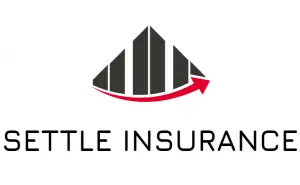“This post may contain affiliate links, if you click a link we may earn a commission if you purchase from that merchant.”
Having a house entails plenty of responsibilities. As a homeowner, purchasing, understanding, and keeping insurance coverage is an important element of your financial plan. However, with the average cost of homeowners insurance for a $250,000 house at $1,312 per year, finding a low-priced policy that delivers the coverage you require may be a top priority.
According to our study, Erie offers the lowest homeowners insurance at $897 per year for $250,000 in dwelling coverage.
Homeowners insurance is designed to help you financially if your home is damaged by an unforeseen incident, such as a fire or a windstorm. And if you purchase your home with a mortgage, homeowners insurance is more than just a smart purchase — it is a requirement to protect the loan.
Table of Contents
The Cheapest Home Insurance Companies
While finding cheap house insurance rates may be a top goal, you’ll almost certainly also want to choose a policy that provides the coverage you require. After all, your home may be your most valuable asset, and you’ll want to safeguard your funds against the possibility of a loss.
If you’re looking for the best Cheapest homeowners insurance choices, these companies may be a good place to start, according to our research:
Erie Insurance
For first-time homebuyers on a budget, this is a good option. Erie has grown from issuing coverage in Pennsylvania to operating in a total of 12 states in its nearly century-long insurance industry. Its coverage ranges from densely populated states like New York to less densely populated ones like Tennessee. Despite its restricted state coverage, Erie is one of the top 15 firms in terms of market share in both house and vehicle insurance, and it also provides life insurance.
Pros:
- On our list, this is the cheapest homeowner’s insurance.
- Various optional coverages are available.
- Local agents.
Cons:
- Only 12 states have it.
USAA
Active duty military personnel, veterans, and their immediate families should consider this option. The military community and their families are well-served by USAA Insurance. USAA is ready to service you and your insurance needs in all 50 states and the District of Columbia, whether you’re current or retired military, a qualifying family member, a cadet, or a midshipman. The majority of USAA evaluations are positive, demonstrating that the company is concerned about its products.
If you are a member of the military community searching for insurance, USAA should be your first stop. Consumer watchdog organizations such as J.D. Power and Consumer Reports consistently place the company at the top of their lists. Despite receiving good ratings from J.D. Power, USAA is considered rank-ineligible due to its limited availability. USAA is exclusively available for military service members and their families.
Those who are qualified for USAA have access to a thriving online community that provides help and support, financial advice, and a great way to learn about what’s going on in the military world. The online community now has over 614,000 members and is expanding daily.
Pros:
- Average premiums are low.
- Coverage focused on the military personal.
- D. Power scores are high.
- Excellent AMBest financial strength score.
Cons:
- Only current and former military personnel, as well as their families, are eligible.
- Only a few discount choices are available.
Progressive
In 1937, Progressive Insurance Company began selling auto insurance. Progressive is now the third-largest insurer in the United States in terms of market share. Progressive has $56 billion in assets and generated $39 billion in revenue in 2019. Progressive has been recognized by Forbes as one of America’s Best Employers, Best Employers for Diversity, Best Employers for New Grads, and Best Employers for Women in recent years. The insurance was ranked 86th on the Forbes 500 list in 2020.
Progressive provides a comprehensive range of personal and corporate insurance policies, as well as financial services such as home mortgages and personal loans. Customers may easily receive an online insurance quotation, register a claim, and compare prices via the Progressive website or mobile app. Check out if you’re looking for insurance and want to be in charge of the procedure.
Pros:
- Progressive’s website allows you to compare quotes from a variety of firms.
- There is a long list of discounts available to help you save money on your premiums.
Cons:
- American Strategic Insurance (ASI), which has a low customer satisfaction rating, underwrites the policies.
- There are only a few optional coverages available.
Nationwide
Nationwide has been providing insurance since 1926 when it was known as the Farm Bureau Mutual Automobile Insurance Company. With a more straightforward title, it now serves more than just farmers and automobiles. It offers coverage for houses, farms, pets, and recreational vehicles, as well as investment goods like pension plans, savings plans, annuities, and mortgages, as well as term and permanent life insurance.
Pros:
- Provides a wide range of insurance and financial services.
- Several discounts are available to help you save money on your premium.
- Free annual insurance assessments are available.
Cons:
- J.D. Power score is below the industry average.
AARP Homeowners Insurance—The Hartford
Founded more than two centuries ago in 1810, the Hartford has the distinction of having insured Abraham Lincoln’s home—for a consideration of $24. Since 1984, the firm has been the AARP’s direct insurance provider for houses and cars. AARP members can save money on home insurance by taking advantage of discounts and credits.
Pros
- An online quote system that fills in-home data automatically depending on the address.
- Senior discounts are available through the AARP program.
- Packages have been upgraded.
- When you combine your car and house insurance, you can save up to 5% on your auto insurance and 20% on your home insurance.
- Deadbolts, smoke detectors, and other home security devices are all discounted.
- When you renew your house insurance for four years, you will receive a renewal credit.
Cons
- Loss of use coverage potentially capped.
Related: Homeowners Insurance Guide: How to Buy Home Insurance Policy







































